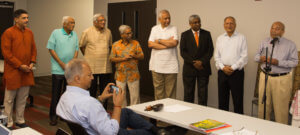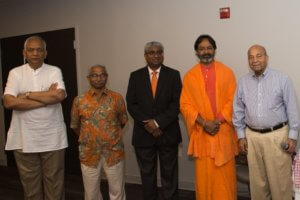As we all know, conflicts are omnipresent in human relations. They are neither inherently good nor bad. A conflict situation arises when individuals or groups or states pursue incompatible goals. These competing goals can range from needs within a family to competition over scarce resources between members of a community or between states. When competition turns violent, conflict resolution becomes essential as the costs rise with the short- term and long – term implications. This webinar will introduce some of the leading theories of conflict resolution. It will begin with an introduction to conflict theories, focusing on various ways to approach conflict. It will also focus on the conflict at various levels – individual, group, intra-state and inter-state.
The major goal of the webinar, however, is to introduce the elements of Hindu thought that deal with conflict resolution. Starting from the ancient period to the present, various Hindu scriptures and thinkers have pondered over conflicts at various levels and explored paths to peace. Starting from Shanti Parva of Mahabharata to writings of the 20th-century Indian thinkers, various useful elements can be found in Hindu thought reflecting on various conflicts in human society and their solutions. The webinar will emphasize that Hindu thought is rich in providing various paths to realize peace. While introducing participants to the core elements of the Hindu thought, the webinar will examine their conflict resolution potential. For instance, while for Kautilya, a strong state is a necessary pillar for peace, Swami Vivekananda emphasized universal acceptance and toleration as two core elements for sustainable peace.
The webinar will also introduce participants with various courses offered under this program.
By the end of the webinar, the participants will
- Have an understanding of the background and characteristics of conflict and peace studies;
- Gain knowledge about various tools used by scholars to address conflict;
- Gain a broader understanding of Hindu thought and its conflict resolution potential; and
- Have a wider understanding of contemporary conflicts from a Hindu perspective and explore the relevance of the Hindu perspective for the 21st-century world.
Join us for an hour on the 21st of March at 2:00 pm EST to get to more about the Subject Hindu Conflict Resolution and what HUA has to offer.










